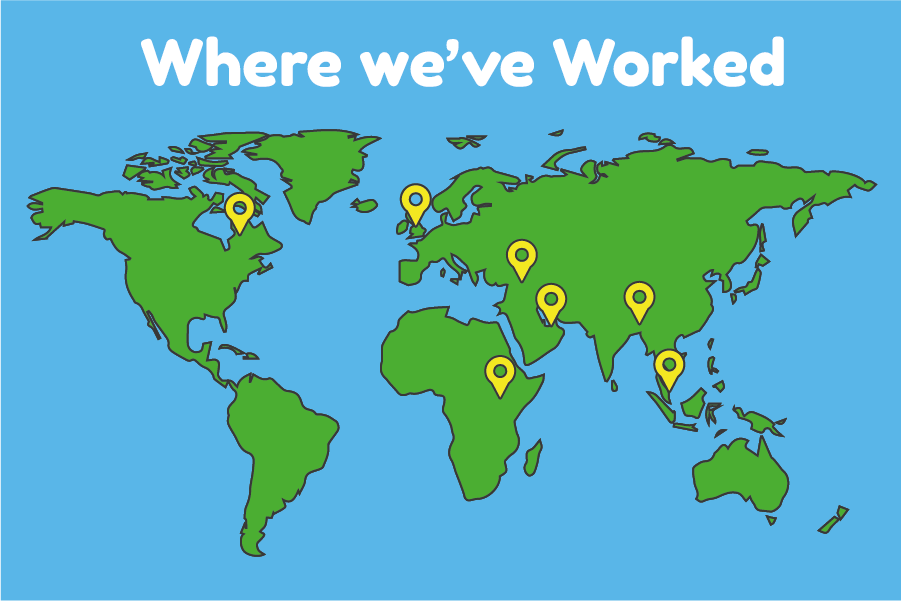We have been involved in various UK, EU and international research projects and we are always looking to expand the work we do.
Overall, we collaborate to improve the accuracy and reliability of our research outcomes. Being able to share resources with other groups allows us to do more practical activities in less time than if we were to do it ourselves. Resources, such as experts in the field of CCI; specialist equipment and research participants can make a real difference in the findings of our research. All these things can increase the effectiveness of the projects that we publish. Additionally, we hope to provide similar assistance for anyone who collaborates with us.
By collaborating, we hope more people get to know about our findings so that they will influence the future work of other research groups and industry experts. As we gradually achieve this, we believe that we can have an impact on how future child-centric technology is designed. Technology does and will have a large presence in children’s lives, so we hope that our findings have a positive impact on this.

Sometimes, it may be necessary for organisations to request assistance on certain projects that require expert knowledge to complete. Depending on the project aims, our group may be able to assist.
In a project led by the University of Oulu, we collaborated in a research project with a variety of universities as well as Nokia. This project aimed to understand how music-centric technology could be used to help children become more socially included.
We understand that there are many experts in universities around the world other than ourselves. Being able to collaborate with other experts is often a beneficial experience in regard to the project outcomes. Whether it is with a project of our own or led by any other University, we’re open to being involved.
Previously, we have collaborated with Swansea University, Northumbria University and the University of Birmingham to produce a publication focused on the inclusion of teenagers in design-evaluation sessions. Specifically, these evaluations were of existing technology redesigned to reduce their overall energy consumption. These sessions were held by Northumbria University, which provided a suitable environment to attain relevant results.
Relevant Resource(s)
Schools are highly valuable collaborators for our organisation. Due to the nature of our research, being able to include children in our projects is paramount to ensure our findings are accurate and reliable. Usually, we would organise a M.E.S.S Day with collaborating schools to carry out activities that not only provides data for our projects, but also gives children an educational experience.
In 2019, our group carried out a project that investigated how technology can be used to allow children to socialise with others who speak a different language. An application prototype was developed by our group that would translate messages sent to participants, originally written in a foreign language, into their native language. This project was tested both in England and Nepal, in which MESS Days were organised to record the effectiveness of these translations.

If you are from a school, university or other external organisation and you need assistance with any projects related to Child-Computer Interaction, please get in touch.
Every year we collaborate with a variety of groups without who we would not effectively be able to carry out research with children and teenagers. We would therefore like to thank all the schools, universities, and organisations that we have worked with.